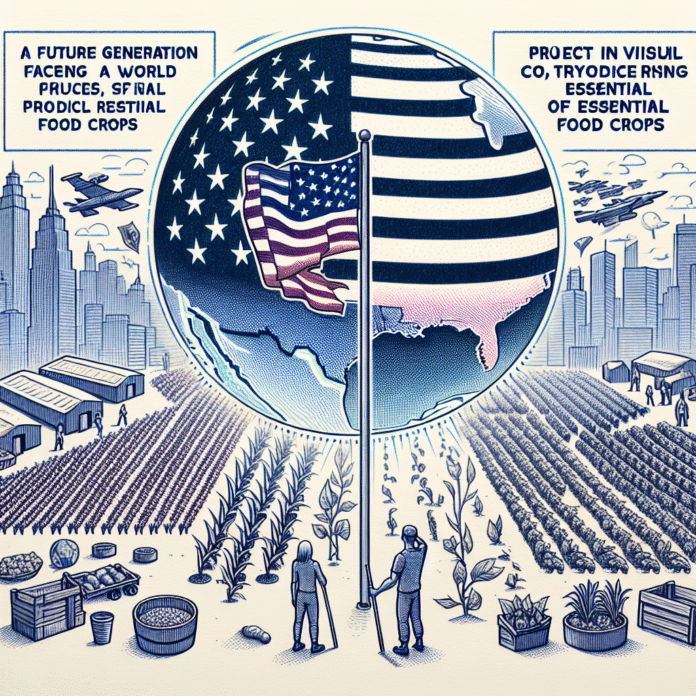Future Food Security Challenges for Today’s Children
Today’s Children May Face a World with Decreased Food Production
Recent analyses suggest that the United States may only be able to produce half as much of key food crops in the near future, raising significant concerns for the next generation. This decline in agricultural output could stem from various factors, including climate change, environmental degradation, and shifts in agricultural practices.
Impact of Climate Change on Agriculture
Climate change is one of the most pressing challenges affecting food production. Rising temperatures, unpredictable weather patterns, and increased frequency of extreme weather events can severely impact crop yields. For instance, prolonged droughts can lead to water scarcity, hindering irrigation efforts and reducing the quality and quantity of harvests. Conversely, excessive rainfall and flooding can damage crops and soil health, creating further obstacles for farmers.
Environmental Degradation and Soil Health
In addition to climate change, environmental degradation poses a significant threat to food production. Practices such as deforestation, over-farming, and the excessive use of pesticides and fertilizers can deplete soil nutrients and disrupt ecosystems. Healthy, nutrient-rich soil is essential for growing crops, and its degradation can lead to reduced productivity and increased vulnerability to pests and diseases.
Shifts in Agricultural Practices
The agricultural industry is also experiencing shifts that could affect food production. As urbanization expands, arable land is becoming scarcer, making it increasingly challenging to meet the demand for food. Additionally, the focus on monoculture—growing a single crop over a wide area—can lead to a lack of biodiversity, which is crucial for a resilient food system.
Food Security and Future Generations
The implications of declining food production extend beyond just crop yield. Food security is a critical issue that affects nutrition, health, and overall well-being. Today’s children may face challenges in accessing sufficient, safe, and nutritious food, potentially leading to increased rates of malnutrition and related health issues.
To address these challenges, it is vital to invest in sustainable agricultural practices, support local farmers, and promote research into climate-resilient crop varieties. Education about food systems and resource conservation can empower future generations to advocate for sustainable practices that ensure food security.
Conclusion
As we look to the future, it is essential to recognize the interconnectedness of environmental health, agricultural practices, and food security. By taking proactive measures now, we can work towards a world where future generations have access to the food they need to thrive. Ensuring a stable and secure food supply will not only benefit children today but also foster a healthier planet for generations to come.
